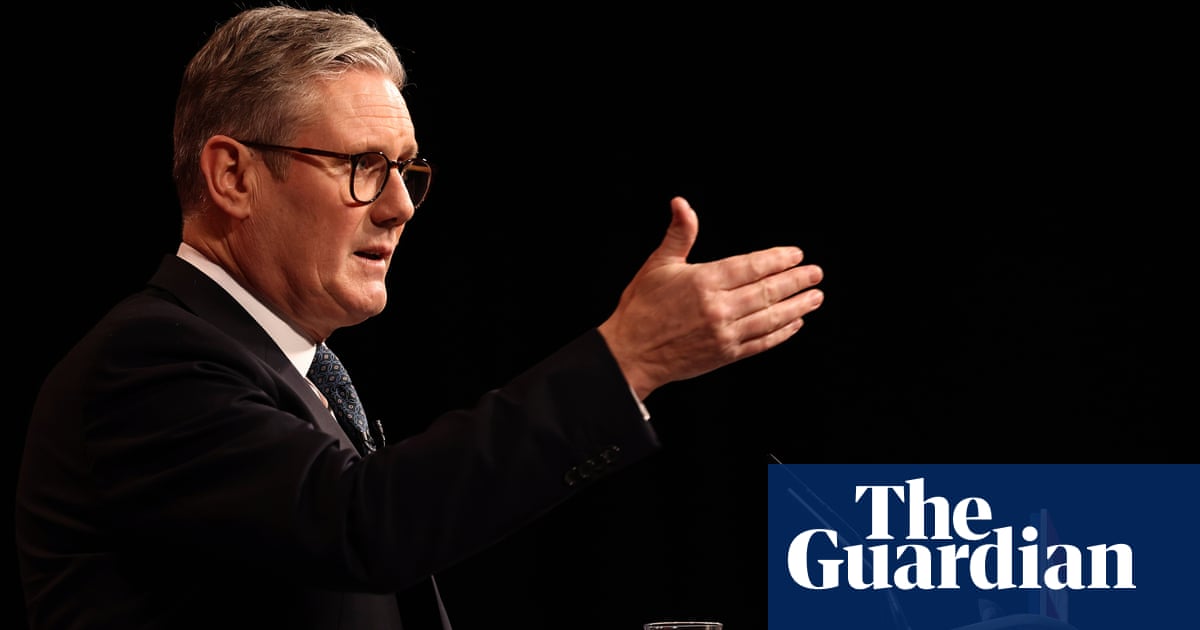It was a reset designed to boost Keir Starmer’s premiership after taking into account opinion polls, the scandal surrounding the transport minister and worries about the economy.
The the Prime Minister gave a speech going out new stages – fleshing out his government’s missions with aims to reduce NHS waiting lists, get bobby names on the beat and raise living standards.
The targets are aimed at a public desperate to see material improvements in their lives after being promised 14 years of “change” by the Conservatives at the July election.
But alongside the goals, Starmer also made it clear that he thinks one of the main issues frustrating change is process, not policy: roadblocks caused by civil service.
As the Institute of Management said afterwards: “Unusual for such a public speech, Starmer returned again and again to the internal issues of process and delivery. As well as trying to underline the scale of the government’s ambition, it has shaken up the public sector – and the civil service in particular –.
Labor councilors and politicians have complained for months that they do not realize how difficult it is to achieve change while in government. It became a common refrain that “Jacob Rees-Mogg had some things right” or “Dominic Cummings was right”.
Before entering government, Starmer and his team appeared to have little interest in reshaping Whitehall beyond the idea of ”mission councils” to oversee change. But that is clearly now much more clearly on the table as No 10 looks for ways to push through reforms. One senior government source said many options were being considered, including a strengthened No. 10 and a reduced Cabinet Office, while the overall number of civil servants “will definitely have to come down”.
Simon Case, the outgoing cabinet secretary who, as an appointee of Boris Johnson, was unloved by the new administration, could clearly see where the wind was blowing as he delivered a farewell lecture earlier this week. He gave eight examples of ‘shining lights’ in the civil service that exemplify best practice but also make the case for moving with the times and needed reform.
“Looking ahead to the future, what I fear most is complacency and an unwillingness to recognize that our unique constitutional position must be re-earned, that our continued existence relies on change as well as continuity,” he told the audience, including at least three former cabinet secretaries.
“It is unlikely that it will be enough to wander amicably, responding to external factors… Progress, purpose in progress, is essential. Civil service should be seen as an integral part of the journey ahead, not in the rearview mirror.
Starmer, himself a former civil servant as a former Director of Public Prosecutions, may not have come into office with a desire to remake the British state, but that is what he has now tasked his new cabinet secretary with, Chris Wormaldby doing. “Starmer said he was prepared to be unpopular to get things done and that’s what he’s doing,” said one supportive Labor MP. “He says what needs to be said.”
after the promotion of the newsletter
With Elon Musk threatening to tackle the red tape in Donald Trump’s US and Nigel Farage likely to adopt similar rhetoric in the UK as he prepares to face off against the incumbents in May’s local elections in England, Starmer may also deliberately take own steps towards preliminary criticism of the sluggish government.
One of the prime minister’s problems, however, is that criticizing civil servants too publicly is unlikely to get them to perform at their best. “He could say he needed more of us, but in a way that didn’t hurt morale,” said a Whitehall insider. “It’s really harmful. We expect it from the Tories, but it’s a shock.”
Senior Labor sources said that the prime minister was not directing his remarks only at civil servants but at the entire work of the government. “He said Whitehall had lacked central leadership for 14 years because of all the cutting and shuffling; it puts an end to short-term sticking plasters,” said one. After all, the Prime Minister had to make a television appearance on Friday to make it clear that he does value the work of civil servants, while stressing that he “intends to push through this reform to make sure we deliver better results for the country”.
This may be easier said than done. Numerous plans have been written about how to reform the civil service – most recently by David Cameron’s Whitehall change minister, Frances Maud. And many prime ministers have ended up avoiding radical options for change – from increasing political participation in the selection of senior civil servants to bulking up Number 10 – often concluding that a major Whitehall reform battle will not yield much reward from the electorate.
However, Starmer appears to have an appetite for a fight and believes that transforming the public sector is essential to help him achieve his missions.
